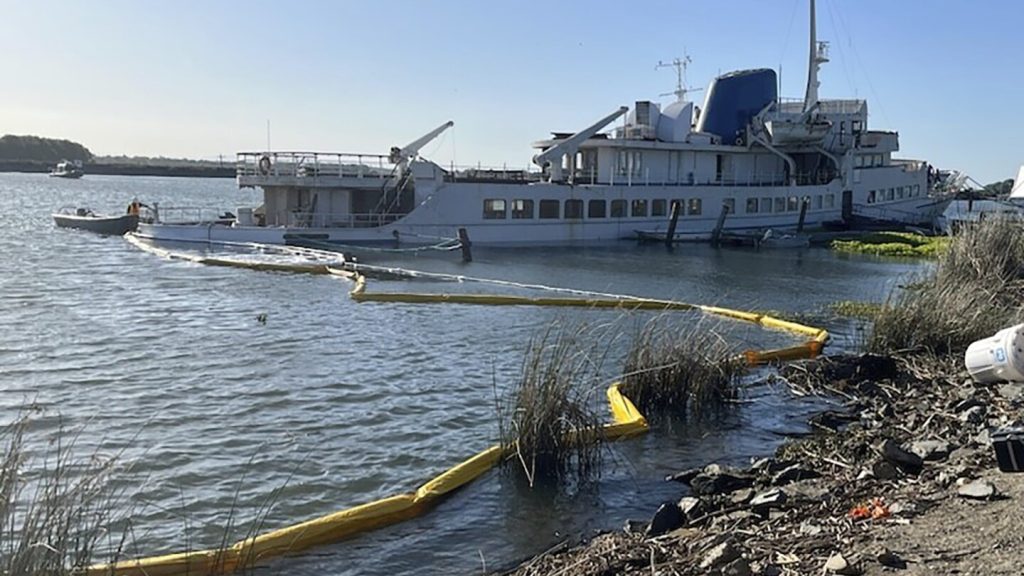The MV Aurora, a 1950s-era cruise ship permanently moored in Little Potato Slough in California’s Sacramento-San Joaquin River Delta, began sinking and leaking pollution on Wednesday. The U.S. Coast Guard placed a containment boom around the vessel after a sheen was observed on the water. The ship was seen low in the water next to the slough’s grassy embankment. It is unclear what exactly was leaking, as the vessel recently changed ownership and details about its pollutants were unknown. The San Joaquin County Sheriff’s Office reported that the ship was leaking diesel fuel and oil, prompting concerns about potential environmental impact.
Despite efforts to contain the pollution, no oiled wildlife had been observed so far. The Coast Guard notified a wildlife care organization to be on standby in case any animals needed assistance. The MV Aurora, formerly named Wappen von Hamburg, was built in Germany in 1955 and has traveled around the world before ending up in the delta. A California man purchased the ship in 2008 with plans to restore it as a shoreline attraction, but those plans have now been overshadowed by the environmental threat it poses.
Authorities are working to assess the situation and determine the best course of action to prevent further pollution and environmental damage. The containment boom around the ship and the city’s water intake pump station is intended to contain any spillage and prevent it from spreading further in the delta. The sinking of the MV Aurora raises concerns about the potential long-term impacts on the local ecosystem and wildlife in the area. The Coast Guard is monitoring the situation closely and coordinating with local agencies to address the pollution threat.
The incident highlights the challenges associated with managing pollution from aging vessels and the importance of proper maintenance and oversight to prevent environmental disasters. The sinking of the MV Aurora serves as a reminder of the need for stricter regulations and monitoring of derelict ships to mitigate the risks they pose to waterways and ecosystems. As efforts continue to contain the pollution and assess the damage, authorities are also focused on identifying the responsible parties and holding them accountable for the environmental harm caused by the sinking of the cruise ship. The incident serves as a wake-up call for the maritime industry and regulators to prioritize the safe disposal and maintenance of aging vessels to protect our oceans and waterways.


